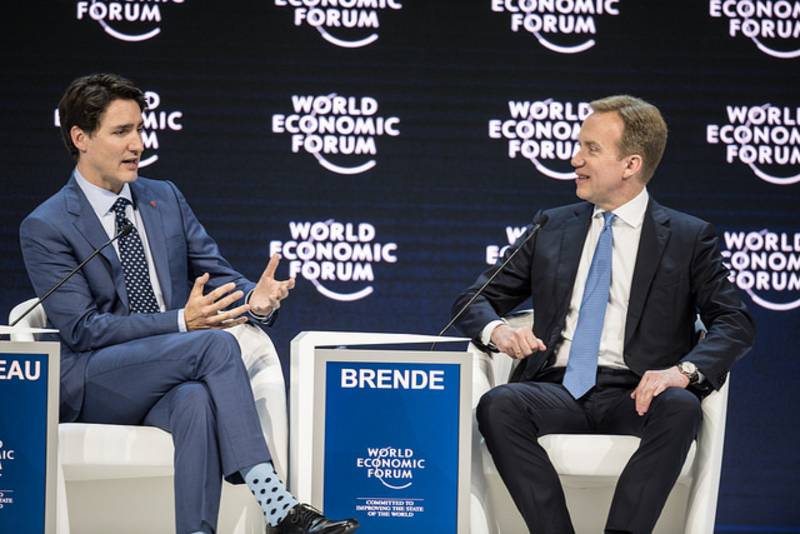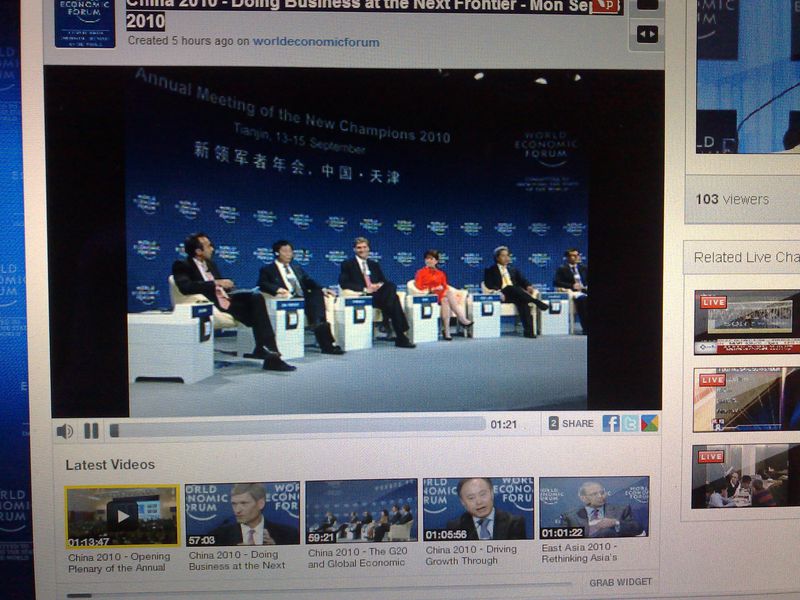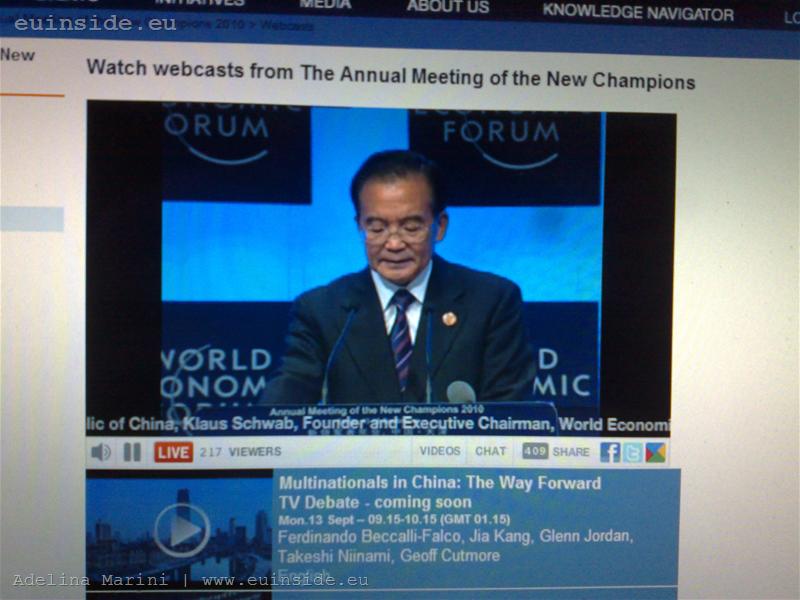The world's tuberculosis sanatorium Davos and its purpose
euinside, January 27, 2010
 In the beginning it was the shock from the crisis. Then a lot of ideas for overcoming the crisis came - from over-regulation on a national level to reforming the international financial institutions, accompanied by common efforts. In the end, we reached the level of everyone on his own and from doing nothing it came to an unexpected final - the way the EU showed off that it will introduce tougher pan-European regulation and supervision, the US which lagged behind took up the lead and introduced drastic measures. And, in spite of all this, the market started lifting its head and to show indications of hunger after a serious illness.
In the beginning it was the shock from the crisis. Then a lot of ideas for overcoming the crisis came - from over-regulation on a national level to reforming the international financial institutions, accompanied by common efforts. In the end, we reached the level of everyone on his own and from doing nothing it came to an unexpected final - the way the EU showed off that it will introduce tougher pan-European regulation and supervision, the US which lagged behind took up the lead and introduced drastic measures. And, in spite of all this, the market started lifting its head and to show indications of hunger after a serious illness.
Actually, there were no reforms of the key global institutions with the exception of the promotion of the international forum G20 which still is nothing more than another place where world leaders gather to talk in an informal atmosphere. These are the reasons why the major question for this year's World Economic Forum in Davos is - what's the point?
This question is disturbing the American capital daily Washington Post which has collected the opinions of several independent experts.
A very interesting approach has chosen the visiting scholar at the Carnegie Endowment for  International Peace David Rothkopf to show what exactly the WEF is. According to him, the forum looks very much like high school where there is a group of cool kids who enhance their status simply by hanging out with one another. "And if you think Davos is about anything other than status-seeking-behavior, then you have read too many of the press releases of the overly-earnest Swiss gnomes who put the meeting together. They describe themselves as being "committed to improving the state of the world." Mr Rothkopf interprets this commitment as an attempt to improving the state of those aspects of the world that are important to CEOs and politicians and the journalists who share the appetizers with them at the receptions in the Belvedere Hotel.
International Peace David Rothkopf to show what exactly the WEF is. According to him, the forum looks very much like high school where there is a group of cool kids who enhance their status simply by hanging out with one another. "And if you think Davos is about anything other than status-seeking-behavior, then you have read too many of the press releases of the overly-earnest Swiss gnomes who put the meeting together. They describe themselves as being "committed to improving the state of the world." Mr Rothkopf interprets this commitment as an attempt to improving the state of those aspects of the world that are important to CEOs and politicians and the journalists who share the appetizers with them at the receptions in the Belvedere Hotel.
Walter Russel Mead, a senior fellow for U.S. foreign policy at the Council on Foreign Relations, quotes Winston Churchill by saying that "jaw-jaw is better than war-war". From this point of view, the same goes for Davos - there is plenty of jaw-jaw, and to the extent that regular communication between the world's business and political leaders can reduce the chances for war-war, Davos does a lot of good. Obviously this year the commentators of Davos have plenty of creative comparisons. Walter Russel Mead recalls the book of Thomas Mann "The Magic Mountain" which develops in the same small Swiss ski resort of Davos.
The novel centered on a tuberculosis sanatorium where patients come from all over the world to rest, relax and talk, endlessly. It's never clear whether the mysterious Swiss figure who runs the sanatorium is a genius or a quack; the meals are good and the talk goes on. In this case, probably the author has in mind the founder of the WEF - the Swiss Klaus Schwab.
 In a similar spirit comments the author of "The End of the Free Market: Who Wins the War Between States and Corporations?" Ian Bremmer. He writes that the global economic crisis profoundly sped up trends that had been developing for decades, but with profoundly distracted participants not noticing particularly much. There's now a dramatically sharper relief in tensions between developed states and developing ones; free-market economic systems and state capitalist ones; and, ultimately, a U.S.-led unipolar world and a more leaderless non-polar one. What Davos does, more than anything else, is bring the world together to take its pulse. The world's not been in for a checkup for a while. And this is what it's going to do in the next few days, Bremmer writes.
In a similar spirit comments the author of "The End of the Free Market: Who Wins the War Between States and Corporations?" Ian Bremmer. He writes that the global economic crisis profoundly sped up trends that had been developing for decades, but with profoundly distracted participants not noticing particularly much. There's now a dramatically sharper relief in tensions between developed states and developing ones; free-market economic systems and state capitalist ones; and, ultimately, a U.S.-led unipolar world and a more leaderless non-polar one. What Davos does, more than anything else, is bring the world together to take its pulse. The world's not been in for a checkup for a while. And this is what it's going to do in the next few days, Bremmer writes.
 Justine Trudeau | © WEF
Justine Trudeau | © WEF | © euinside
| © euinside | © euinside
| © euinside